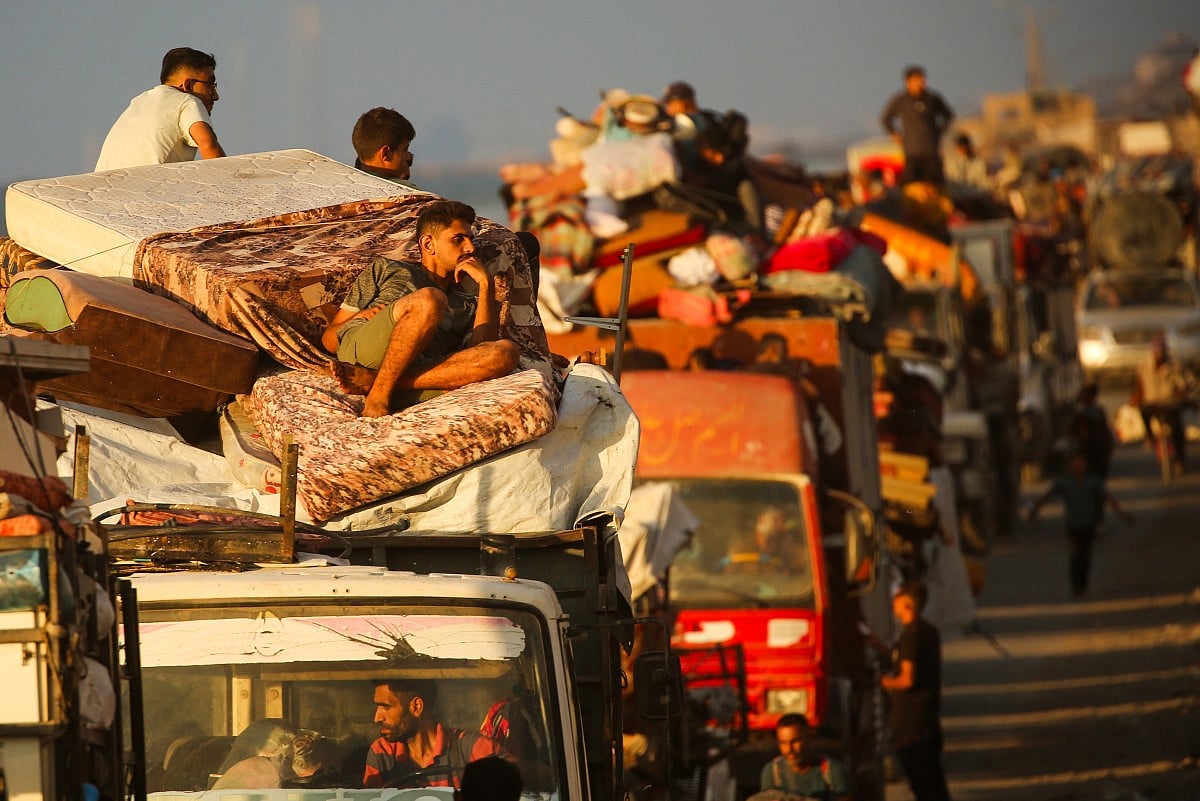Trump unveils ‘21-point plan’ to end Gaza war: Key points and Arab leaders’ response
Arab leaders back parts of plan but demand changes on Jerusalem, settlements

Dubai: US President Donald Trump has proposed a “21-point plan” to end the Gaza war, presenting it to Arab and Muslim leaders in New York this week, according to multiple media reports.
The proposal triggered detailed discussions on how to shape a final roadmap that could bring an end to one of the region’s deadliest conflicts in decades.
US Special Envoy Steve Witkoff, speaking at the Concordia Summit on the sidelines of the UN General Assembly, said Trump’s blueprint addressed both Israeli concerns and the priorities of regional states. “We’re hopeful, and I might say even confident, that in the coming days we’ll be able to announce some sort of breakthrough,” Witkoff said.
Key elements of Trump’s plan
Media reports citing sources briefed on the talks said the US framework includes:
Release of all hostages held by Hamas
A permanent ceasefire
A governance model for Gaza without Hamas
A phased Israeli withdrawal from the Gaza Strip
Arab and Muslim leaders reportedly welcomed much of the proposal but called for additional provisions, including:
No annexation of the West Bank
Maintaining the current status quo for Jerusalem
Addressing illegal settlements
Ensuring increased humanitarian aid for Gaza
“The meeting was super useful,” one regional diplomat told reporters, noting that leaders highlighted conditions they considered essential for any final deal.
Diplomatic momentum, Israeli rejection
A joint statement issued after the talks underscored the leaders’ “commitment to cooperate with President Trump” and their recognition of his leadership role in pushing for peace.
But Israeli Prime Minister Benjamin Netanyahu swiftly dismissed the broader international moves toward Palestinian recognition.
“The shameful capitulation of some leaders to Palestinian terror does not obligate Israel in any way. There will be no Palestinian state,” he said, after Australia, Britain, Canada and France recognized Palestine.
The discussions followed a recent Israeli strike in Doha that killed Hamas operatives and derailed ongoing mediation. Qatar offered to continue facilitating negotiations but demanded assurances against future Israeli attacks on its territory.
US Secretary of State Marco Rubio, who has injected urgency into the process, joined follow-up meetings with Arab leaders on Wednesday. “Very important work is ongoing, even as we speak, with regard to a future for Gaza and the Palestinian people,” Rubio said.
Europe and Abraham Accords
European diplomats told media outlets they had received a readout of Trump’s plan and described it as a genuine attempt to restart the peace process. One official said it could curb Israeli annexation of the West Bank—an action that could otherwise cripple the Trump administration’s stated goal of expanding the Abraham Accords.
The new US push comes just days after Saudi Arabia and France convened a two-state solution conference, which Washington pointedly boycotted, citing opposition to unilateral recognition of Palestine.
Fighting rages in Gaza
Even as diplomatic activity intensified, Israel pressed its offensive in Gaza City, displacing hundreds of thousands. The military said its aim was to “root out Hamas,” the group whose October 2023 attack triggered the war. Gaza’s civil defence agency reported dozens killed in fresh air and ground strikes.
For ordinary families, the violence continues to exact a heavy toll. “My sister was killed as we tried to flee south,” said Thaer Saqr, 39.
Sign up for the Daily Briefing
Get the latest news and updates straight to your inbox
Network Links
GN StoreDownload our app
© Al Nisr Publishing LLC 2026. All rights reserved.
